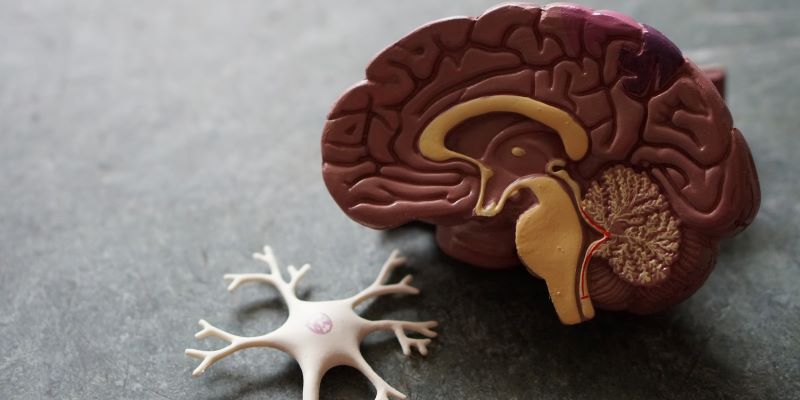Alzheimer's disease is an advancing type of dementia leading to profound memory loss and cognitive difficulties. Dementia describes a broad spectrum of medical conditions marked by impaired memory, thinking, and behavior, which significantly hinder daily activities. Such cognitive disturbances can originate from diverse sources, including traumatic brain injuries or specific diseases. In some instances, pinpointing the exact cause can be challenging.
According to the Alzheimer’s Association, Alzheimer's disease constitutes a significant portion of dementia cases, accounting for approximately 60%- 80% of them. The typical age for a diagnosis is post-65, but when someone is diagnosed before this age, it's usually categorized as "younger onset" or "early onset" Alzheimer’s disease.
Currently, the medical community has not discovered a cure for Alzheimer’s. However, there are available treatments of Alzheimer's disease that may decelerate the disease’s progression.
Alzheimer’s Facts
While Alzheimer’s disease is widely recognized, there’s more to understand than the name alone:
- Alzheimer’s disease is a long-standing, persistent condition and should not be mistaken as a normal aspect of aging.
- Alzheimer’s disease is distinct from dementia; it is a subtype of dementia.
- The symptoms of Alzheimer’s are insidious. They gradually intensify, leading to a steady cognitive decline.
- While anyone can develop Alzheimer’s, some demographic groups are at an elevated risk, especially individuals aged over 65 or those with familial ties to the disease.
- Alzheimer's progression and impact can vary. Some individuals may live for years with only mild cognitive impairments, while others might experience swift symptom development and rapid disease progression.
- Despite the absence of a cure, treatment of Alzheimer's disease can potentially mitigate the disease’s effects and may enhance the patient’s quality of life.
Cognitive Screening and Alzheimer’s: What Older Adults Think
A recent poll targeting individuals aged between 65 to 80 revealed compelling insights about their perspectives on cognitive testing and early warnings for declining memory and thinking capabilities. Most people were unaware of how is Alzheimer's disease diagnosed or if they can get tested.
Key Findings
- A significant 80% of older adults perceive the value in tests that can offer early indicators of a decline in cognitive abilities.
- About 60% believe that healthcare providers should present yearly cognitive screenings, comprising brief memory tests, to all seniors.
- The vast majority (96%) asserted that any signs of cognitive problems from these screenings would motivate them to take steps towards safeguarding their brain health. Additionally, three-quarters mentioned they would reconsider their financial and health care strategies based on the results.
- Despite these attitudes, 80% stated they hadn't undergone a cognitive test in the preceding year to detect initial signs of Alzheimer’s or other dementias. Interestingly, 59% claimed they've never had any such screening.
These intriguing findings originate from the University of Michigan National Poll on Healthy Aging and have been released in tandem as a comprehensive report and dual research presentations at the 2023 Alzheimer’s Association International Conference held in Amsterdam.
The poll operates under the umbrella of the U-M Institute for Healthcare Policy and Innovation and receives support from entities like AARP and Michigan Medicine, which is the academic medical center at the University of Michigan.
Insights on Blood Tests for Alzheimer’s Detection:
The polling team extended their inquiry beyond cognitive screening. They delved into the knowledge and opinions of adults aged 65 to 80 regarding blood tests. These tests aim to detect Alzheimer’s by identifying biomarkers of brain proteins, tau and amyloid.
- Only 17% of the participants claimed to be familiar with such blood tests.
- A negligible percentage, less than 1%, had undergone this test.
- 9% expressed interest in having the test.
As of now, these blood tests are primarily ordered by physicians specializing in brain disorders for patients with evident cognitive impairment. However, there's growing speculation among experts about the potential of these tests as a screening tool or for early detection of Alzheimer’s. Half of the polled participants voiced that such blood tests should be universally accessible to all seniors aged 65 and above.

Identifying Symptoms of Alzheimer’s Disease
Occasional forgetfulness is a part of everyone's life. However, individuals with Alzheimer’s exhibit specific, persistent behaviors and symptoms that intensify over time. These risk factors for Alzheimer's disease might encompass:
- Persistent memory lapses that disrupt daily functions, like forgetting appointments.
- Struggling with familiar operations, for instance, operating a microwave.
- Challenges in problem-solving.
- Difficulty in maintaining coherent speech or writing.
- Disorientation regarding time and place.
- Impaired judgment skills.
- Neglecting personal hygiene.
- Mood swings and changes in personality traits.
- Avoiding social interactions, leading to withdrawal from friends, community, and even family.
Nevertheless, these symptoms are not exclusive indicators of Alzheimer’s. It's crucial to consult with a healthcare professional for an accurate diagnosis.
As the disease advances, its symptoms also evolve. In the disease’s latter stages, risk factors for Alzheimer's disease include patients frequently face profound challenges in speaking, moving, or even reacting to their surroundings.





